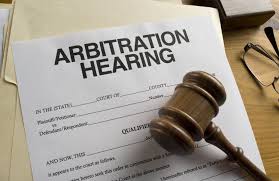

This post first appeared on the Securities Arbitration Alert blog. The blog’s editor-in-chief is George H. Friedman, Chairman of the Board of Directors for Arbitartion Resolution Services, Inc.
Overruling prior Circuit precedent, the Eleventh Circuit finds that the grounds set forth in FAA section 10 are the sole basis for challenging “foreign” awards under the Convention on the Recognition and Enforcement of Foreign Arbitral Awards (“UN Convention”), where the arbitration took place in the United States.
An issue dividing the Circuits and some state courts is the grounds for challenging awards under the UN Convention. The views range from: 1) application of the grounds in Article V of the Convention, as implemented by Federal Arbitration Act (“FAA”) Chapter 2’s 9 U.S.C. section 207; 2) the grounds set forth in FAA Chapter 1’s 9 U.S.C. section 10; and/or 3) both for “foreign” awards resulting from an arbitration conducted in the U.S. For the Eleventh Circuit, Corporacion AIC, SA v. Hidroelectrica Santa Rita S.A., No. 20-13039 (11th Cir. Apr. 13, 2023), represents reversal of precedent dating back for over 20 years, and holds unanimously that in UN Convention arbitrations conducted in the U.S., only the FAA Chapter 1 grounds are available. We borrow liberally from the Opinion.
Background
“The United States is a signatory to the New York Convention, a treaty which regulates international arbitration awards. See Convention on the Recognition and Enforcement of Foreign Arbitral Awards, June 10, 1958, 21 U.S.T. 2517, 330 U.N.T.S. 4739. Congress has implemented the Convention through Chapter 2 of the Federal Arbitration Act. See 9 U.S.C. §§ 201 et seq.[] Our task is to decide what grounds can be asserted to vacate an arbitral award governed by the New York Convention.”
Procedural History
“Dissatisfied with the arbitral decision, Corporación AIC filed suit in federal court seeking to vacate the award. It asserted that the arbitral panel had exceeded its powers, a ground set out in 9 U.S.C. § 10(a)(4), a provision of Chapter 1 of the FAA…. The district court ruled that such a challenge was unavailable because under Eleventh Circuit precedent, namely Industrial Risk and Inversiones, the grounds for vacatur of an arbitral award governed by the New York Convention are limited to those set out in Article V of the Convention. The district court therefore did not analyze whether the arbitral panel had exceeded its powers.”
Prior Precedent …
“Industrial Risk [Insurers v. M.A.N. Gutehoffnungshutte GmbH, 141 F.3d 1434, 1445–46 (11th Cir. 1998)], decided in 1998, held that when a party seeks vacatur of an arbitral award issued under the New York Convention a district court can only consider the grounds set out in Article V of the Convention…. Over 20 years later, Inversiones [y Procesadora Tropical INPROTSA, S.A. v. Del Monte International GmbH, 921 F.3d 1291, 1301–02 (11th Cir. 2019)], adhered to Industrial Risk because it constituted binding Eleventh Circuit precedent.”
… Overruled
“We hold that in a New York Convention case where the arbitration is seated in the United States, or where United States law governs the conduct of the arbitration, Chapter 1 of the FAA provides the grounds for vacatur of an arbitral award. To the extent that Industrial Risk and Inversiones are inconsistent with this holding, we overrule them.[] The district court correctly followed Industrial Risk and Inversiones, which constituted binding precedent at the time, and declined to address Corporación AIC’s argument that the arbitral award should be vacated because the panel exceeded its powers under 9 U.S.C. § 10(a)(4). We vacate the judgment in favor of Hidroeléctrica and remand for the district court to consider Corporación AIC’s § 10(a)(4) contention” (footnote omitted).
(ed: *Certiorari was denied in Industrial Risk. **We think this issue cries out for resolution by SCOTUS!)






